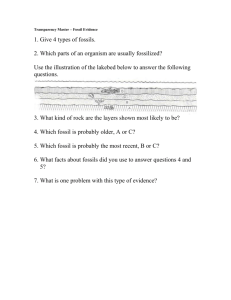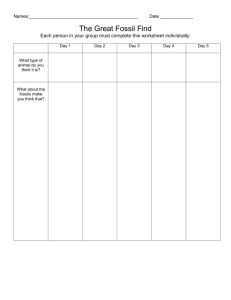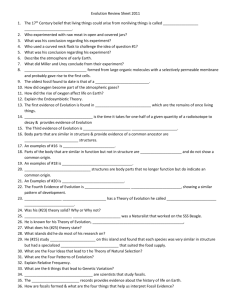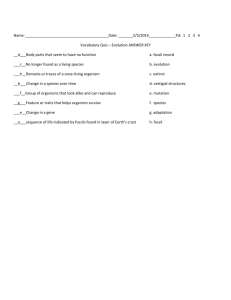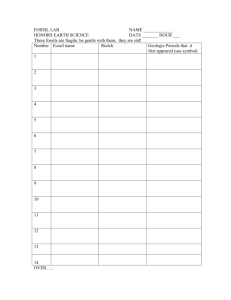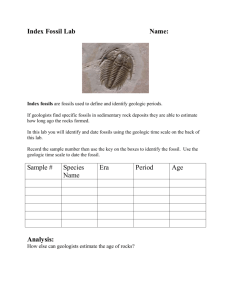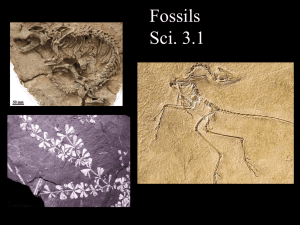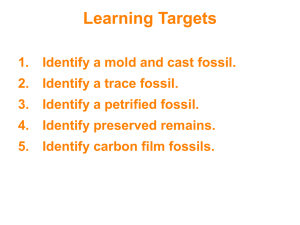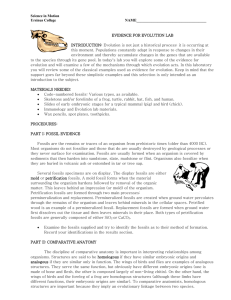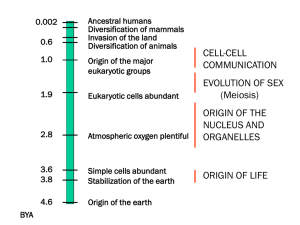Fossils are - Pleasantville High School
advertisement
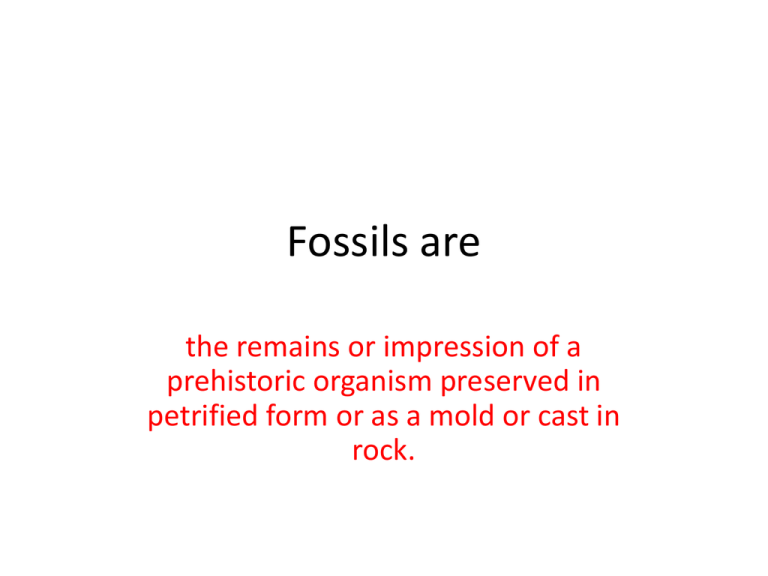
Fossils are the remains or impression of a prehistoric organism preserved in petrified form or as a mold or cast in rock. HOW DO FOSSILS FORM? • The formation of any fossil is a rare event • Most fossils form when organisms die and are buried Determining a fossils age • TWO WAYS relative and radioactive dating What do fossils reveal? Millions of fossils scientists have collected is called the FOSSIL RECORD FALSE: The fossil record is complete. Why? Sediment has to cover an organism's remains in order for the long fossilization process to begin. Most organisms decompose before this can happen. EXTINCTION: is when all members of a certain species die. Major evolutionary events APPROXIMATE DATE 540 mya EVENT Life in shallow seas started fish evolved 430 mya 410 mya Life on land formed GEOLOGIC time scale How FAST does evolution occur? Gradualism: the idea that change can take place through the cumulative effort of slow but continuous processes Why is this theory questioned? If this is correct, then the fossil record should contain many fossils with forms intermediate between different species. This is not what the fossil record shows. Punctuated equilibria: a lot of evolutionary change takes place in short periods of time and that most species will exhibit little evolutionary change for most of their geological history Vocabulary Fossil: the remains or impression of a prehistoric organism preserved in petrified form or as a mold or cast in rock. Extinct: all members of a certain species have died Geologic Time Scale: is a system of chronological measurement that relates to time, and is used to describe the timing and relationships between events that have occurred throughout Earth's history.
